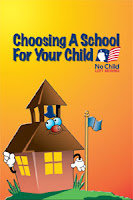 If you know of a parent that has had to make a school choice, please refer them here. Two families in North Africa have asked for help. So — have you ever tried homeschooling, international school, boarding school, or a national school? Would you mind sharing, …. Which turned out to be best for your family — and why? If you had it to do over again, which approach would you recommend to others? What are the pro’s and con’s? If you wouldn’t mind, just tell your story! These two families (and many other) will soak in all the knowledge and experience! Just click “Comment” below to tell your story or share your resource.
If you know of a parent that has had to make a school choice, please refer them here. Two families in North Africa have asked for help. So — have you ever tried homeschooling, international school, boarding school, or a national school? Would you mind sharing, …. Which turned out to be best for your family — and why? If you had it to do over again, which approach would you recommend to others? What are the pro’s and con’s? If you wouldn’t mind, just tell your story! These two families (and many other) will soak in all the knowledge and experience! Just click “Comment” below to tell your story or share your resource.


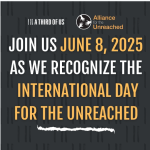



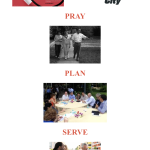

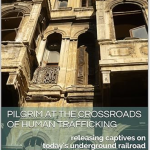
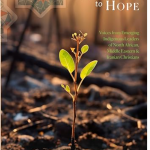


We did schooling in both China and now Thailand. For a good education online plus a high school diploma (no need for the GED), we have used The MorningStar Academy under Learning By Grace. http://www.themorningstaracademy.org/
This is our third year and one son has already graduated from MorningStar and our second one will graduate this year. MorningStar offers all the basic courses with many electives. You can also do your own elective outside of MorningStar, send in documentation and they will add it to the transcript for a price. For example, MorningStar does not offer Thai but we lived in Thailand. We documented two years of Thai language studyfor our son and they accepted it as his foreign language credit. Has a student section with all his classes, online chat, etc. and a parent section that you can keep track of hours spent, grades, percentages of quarter done, etc. Early enroll for the next year and you save a lot. About $1,000 per student per year plus materials.
I don’t know if you’re familiar with the organization, SHARE Education Services, but they have lots of experience presenting different educational options to missionary families in different parts of the world. You can contact them at in**@************on.org.
It very much depends on your ministry. Our field is Spain. On arrival are children were 5,7,9,12. Now the youngest is 16. Our choice was national public elementary schools, and private Christian boarding schools for high school. But we have had a year of at least every other option. The primary deciding factor for our choice was ministy. We are in an evangelism/church planting ministry. Home schooling was seen in the village of 9000 people as a rejection of their system of education, hindering the ultimate goal of the ministry. Local private schools are expensive, often sectarian, and of marginally better quality. No christian school exists in the area. So for elementary school we chose public. It was very hard on the kids, compared to the US pro-child philosophy. Teachers were harsh, used negative motivation for all tasks and the only discipline method employed was tone-of-voice. But our children survived and made good friends, but we needed to be super-vigilant of what they learned and attitudes they picked up.
For High School we chose Black Forest Academy, A-plus quality English-based education, great boarding program, and loving staff but expensive and the kids are far from home. Some kids handle that better than others. Our eldest complained a bit while there, but now raves about how wonderful the experience was. The younger ones loved it.
I wrote a report a few years back for a church explaining in detail the choices that we and other families in the area made. Reply to this post if you would like a copy.
I just found this site yesterday, but I don't know anything about them personally.
http://www.schoolchoiceintl.com/
It looks like they are NOT necessarily focused on ex-pats like those subscribed to this list (msnry's), but all ex-pats in general.
Also, I've noticed the flexible yet thorough programs offered by http://www.thegraceacademy.org (but again, I have no personal experience, as this launched after our sons were finished with school).
We homeschooled our 2 sons through all but one year of K-12. Sonlight Curriculum was great due to its worldview, and then starting in high school, the boys used Switched-On Schoolhouse. It was easier to ship a few CD's per school year rather than a few boxes of books. And SOS enabled them to be more self-guided in their studies.
I commend Gregg for his comment << The primary deciding factor for our choice was ministy. >> It's a very, very big decision that each family must make — whether to put their children's education first, or their ministry first. Our experience of homeschooling our sons when we lived in a village in a "cousin" nation really distanced us from our goal to reach our neighbors. But our sons still love us (!), love Jesus (more important!!), and can read, write, think critically, and both are engaged in passionately furthering the Kingdom as a full-time vocation.
We homeschooled our children in Brazil and it worked very well. We were in a camping ministry so the kids could be on our schedule more often. Anymore, the materials for homeschooling make it possible to school all the way through. Our kids loved being involved with us in the ministry.
I’ve been on both sides of this coin… I’m an mk from W Africa and spent all of my schooling years on the field at an mk school. Later my family and returned to W Africa and did various homeschooling programs, sent one child to a mk school and the other to an International school. We served in both rural and large metropolis settings as well.
They ALL have pro’s and cons and I believe that if at all possible the choice needs to have a lot to do with each individual child. I was sent to an mk school for 1st grade and that would have worked well for our oldest as she was out going and longed to be with the other mks at the school. Our second child was not quite as independent and out going. Had we had the choice (we didn’t because of a war that started) our oldest likely would have gone for first grade while we would likely have delayed our son until 3rd grade or so.
Many people say that MK schools are too hard on the kids. In my experience I’ve seen and have felt that it is harder on the parents and if the parents express how “hard it is on themselves” then it becomes harder on the kids. Parents need to somehow meet the balance between letting the kids know it is hard to send them off and letting them know it is okay to go and make new friends ‘away’ from mom and dad.
When we left our daughter at an mk school for her freshman year I sat down with her house parent to ask some questions as to ‘how they understood their role’ as house parents. Was this the ministry God had called them too or were they just filling in for someone? I wanted to know that they were as called to what they were doing as I had been to what I was doing. Her houseparents did see the mks in their care as their ministry so I left knowing she was in good hands. (Later we had to deal with her feeling that her house parents had ‘more time’ for her then we did, which was an issue we had not really anticipated. We explained that although family was first, Dad’s ministry was to the nationals and the house parents’ ministry was to the kids they took care of, so they would naturally be there ‘on call’ all the time.)
One important thing about mk schools, they give the crucial opportunity for kids to interact socially with kids from ‘similar back grounds’ and cultures while exposing them to new and exciting relationships with kids from other countries and cultures. This is an advantage that homeschooling and even international schools don’t have. Depending on the school they can be isolationist (from the community they are in) or part of the community. The latter is better and more natural than the former.
Mk schools do have downsides. The distance is tough and not being there for birthdays etc is tough. Parents can’t always make it for their first recital, track meet or school play, though they should try to make it to some of those events. They may not be there to encourage and hold when they ‘break up’ for the first time or when they get word that their pet at home died… Another downside is the cost, mk schools are not cheap!
International schools can be good too. It enabled our youngest to relate one to one with kids from the same city and area as where we lived. His friends were all from wealthy local families which left him out of being able to relate at that level but he was able to overcome that with some of his classmates and they became good friends. He daily related with Lebanese, British, Indians and others from our host country which gave him valuable insights.
A downside was that the curriculum used was different enough from the US one that when returning to the US on furlough he found himself ahead in some areas but behind in others. (He was ahead in math while behind in English.) It took a while to get that caught up…
We tried a variety of homeschooling programs as well. These included Sonlight, and an On-line program, as well as having a ‘professional teacher’ who had taught mks for decades pick and choose various curriculum from various sources as she felt would work best for our kids and our situation.
Personally we feel that the latter option was the best. The rest were good, don’t get me wrong but that seemed to work so well that it gave our kids a real jump start.
The on-line program was a good education too but didn’t work well for our situation. We took a mobile satellite modem with us which worked well for e-mail but he school programs were not well suited for ‘download size based fees’. The files were so large it was simply too expensive to keep using and the local internet was slow and risky for sending files (because of viruses). We also found that what they called for as far as the ‘schooling supplies’ needed were not easily found in our setting in W Africa.
The homeschooling had the advantages of our being able to spend more time with our kids and we enjoyed that! In all honesty there were down sides too…
They did not get interaction with other kids from their own background which can be crucial for their personal ‘re-entry process’ to their own country that ‘final time’.
Structure is SO important in this, at least it would have been for my kids. We proposed the setting of ‘rigid’ school hours for each subject like they’d have at school. Further, they should address their teacher as “Mrs_________” during those hours even though it was their mom teaching them. They balked at all that so it never happened. In our case they ‘paid for that’ later as they did not gain a respect for due dates, and got ahead in the classes they liked while getting way behind in the classes they didn’t…
Overall, and this is personal opinion, I like Mk school the best. The approach that worked well for us was when our daughter asked to be allowed to go to an mk school! To this day the year that she was able to attend an mk school is still a year that she fondly remembers…
Hope this helps…
Dear all,
I am a missionary kid who has grown up in Italy and who has had wise parents. I have seen good results, in terms of personality development, Christian conversion, Christian walk, etc., in the lives of those who have attended secular (pubblic) schooling and private schools within the nation itself & disastrous results in some of those who as teenagers went to boarding schools outside of Italy.
I have also visited Bangladesh, the capital, and have found that there as well, in the capital, there are some good private elementary and high schools.
So, from my experience of studying in the pubblic schooling system where my parents have ministered and where I now minister, I would advice that for the good of all involved, including the integration of those ministering cross culturally, I advise to keep the kids in the same nation where the parents are ministering. If necessary, move to the capital city and minister there.
(The advice of moving to the capital city if necessary applies especially for two thirds world nations. In those nations it would be good for kids to attend private schools where education meets European standards and is in Italian or in French.)
You may write to me at ac****@***il.com as I have been thinking of these issues for years.
Yours sincerely,
Andrew D. (Italy)
Dear friends, I am an MK who grew up in Africa, back when there were fewer options. I have a brother and sister who home schooled their kids in S. America, and Africa and they all have been successful when they came back to USA for college.
More importantly, they all walk with God, and several have returned to the mission field, on both continents. My brother went to South America as a missionary, though we grew up in Africa, and one of his daughters has now gone to Africa as a missionary. One daughter has married a national theological student from their South American country.
I had to go to Christian boarding school, 2 four months stints a year since age 7, and then to the public High school in the capital city of Lusaka, Zambia, where several of us boarded with a family. Both situations had several negative aspects that could have impacted me very negatively, but I had the freedom to tell my parents my frustrations, and be understood, sympathized with, and prayed with. I developed lifelong friends at both places. I also saw parents with harsh attitudes, a poor Christian testimony and bitter children
We were taught by our parents that God had called our whole family to this ministry, and that the sacrifices made were difficult for all of us, and we often prayed together about what to do, and helped in all aspects of the ministry. Several of those years we were the only missionary family on that station. We considered the people we were among as our people etc. All of that to say, that the parent’s attitude is very important. If they consider their children a burden and imposition on their “ministry”, the kids can become resentful. My Mom, wrote us individually, each week during our early years. My brother and two sisters got to home school during high school and all did OK in further education in USA. We were very sure we were wanted, and loved.
Having good communication with your kids, understanding their conflicts where they are, and praying with them through it, seemed to be a difference with kids who came out of our identical situations, but had social, and spiritual problems later.
Pray, choose the best option for the child involved, communicate with the child and the situation continually, and adjust if you have to. Kids are survivors, God is great, and I thank God for my experience as an MK, and my parents ongoing ministry after 56 years in Africa.
My email is st******************@***il.com if I can be of help.
I am an MK and my children are third generation MKs! We have lived in the Dominican Republic for the last 10 years. (my mom used a Canadian gov’t curriculum that was provided for Canadians living in isolated areas – so we did lessons and sent them for marking to a teacher). Now for my family: For the first year we put our kids into a local school -for relationship building and language learning. It was really important that our children spoke the language of the nationals. After that first year they all finished their spanish school as 2nd top in the class (ages 7,9,11) and then we had to look at our choices. One of our priorities was that our kids have a solid ENGLISH education and from a Biblical Worldview. Great that they speak spanish but they’d probably study in Canada/USA after highschool. We also believe that God calls families into missions – not just mom and dad. So our priority was to keep our family in missions, ministering together. We chose to homeschool – with them taking music at a local spanish school, and sports at a nearby English Christian school. Homeschooling gave us the ability to minister in our nation as a family. We were able, with the children to birth youth and childrens ministries – in which they helped to give leadership – they were not tag-alongs. After many weeks of internet research, for High school we enrolled them in Christian School in Florida, USA (www.crossroadschristianschool.edu) which allowed me to chose my curriculum (though we did have to meet FL graduation qualifications) – which meant that my Canadian children studied American History, Government – but as a homeschool parent we studied Canadian as well.) I paid $100US per year per child and chose my curriculum. So I have graduated 2 and my last child is set to graduated in January ’09. My children (now 21, 19 and 17) love God and love Missions! They’ve been in ministry for years and are poised to touch their generation! I loved creating with my kids – God is full of creativity to meet the needs of our children on the field. With the internet there are now tons of options to be able to keep our children ministering with us on the field. I have found that our children have opened ministry doors for us. It’s true that homeschooling is a little weird to do in the Dominican Republic -however,the locals know that we are from a different country and we’ve found that homeschooling and explaining the reasons why we homeschool has been eye opening and envied by our Dominican friends. The education system as we know it – is recently new! May God lead you has you ask Him about His plans for your family!
Like the other families, our family has used several education options for our three children in the almost eight years that we have been on the field in Eastern Europe (Bosnia and Serbia). Our kids were 5, 8, and 10 when we arrived. All three went to public school, starting out not knowing any Serbian. They had good days and bad, struggling to understand and learn the language, but ended up learning faster and better than we, the parents, did! They also made many friends and many inroads into the community for us. We did supplement a little bit of homeschool to keep up with their English and history. Math was better done in the public school.
Our oldest son went to Serbian schools for 2 1/2 years, then had to drop out and just do homeschool. While he had learned the language, his writing skills were not at the level needed for 6th grade. Our daughter and younger son completed through 4th grade. That seemed to be the limit for what they could academically handle.
We have done DVD programs for homeschool, which takes a lot of the teaching load off of mom, and also provides greater depth of presentation (multi-media, etc.). By the end of 9th grade, our oldest was struggling with sitting in front of a computer with no interaction, and we made the decision to send him to boarding school (BFA in Germany). He has excelled there – academically and socially. It was a gift from God for him. When our daughter got to 9th grade, we sent her, thinking it would be the same for her. Well, it wasn’t. Boarding school is not for everyone! She is now back at home doing NorthStar Academy, an online school, and loving it! Our youngest continues to do homeschool with DVDs.
I would advise any parents to know as much about your children as possible – what are their strengths, their weaknesses, their personality, their needs. Then, use the resources to determine schooling. I also agree that you need to consider the ministry and ramifications of that.
God is faithful. In my prayers for my kids’ education, the Lord gave me Isaiah 54:13: “All your sons will be taught of the LORD;And the well-being of your sons will be great.” You can trust Him.
We Homeschooled in Africa for elementary. Then public school for 4 years, and then came back to HSing again for Highschool as it was just so much better.
We all wonder if we will do permanent damage to our kids we WE teach them.
Just rest assured that POORLY Home schooled(They are rare by the way) kids still rate as good or better than the average Public school kid. The fear is simply not founded. the Avg HS kids scores in the 83 Percentile when compared with Public school kids.
The other thing to get out of our head is that we lecture for 8 hours per day.
HSing takes 2 hours per day in Elementary grades. 3 is the outside max I would suggest. That is more than enough. Our kids still scored way above the peers when they entered Public school and took university classes for Grade 11. They where not “Exceptional kids” The relaxed HS methodology permitted this.
Homes school is not School at home. It can be, but that is just so hard for everyone. Especially you as the parent. No, the Kids hate it too!
I do not wish to push a specific company. But we tried three of the biggies and then found a more relaxed enjoyable approach.
However, A great balance that takes us away from mere lecture and learning by Rote in a home class, and introduces us to a relaxed learning style is Sonlight. Sonlight.com
It was originally made for missionaries, by missionaries, with internationals in mind. When we began they only had Elementary cores. Now they have all grades. It has rapidly risen to be one of the best overall rated HS programs winning awards in many categories.
Very international in flavor,with materials and books about people and cultures from all over the world. You don’t often see that in Home School literature.
The Sonlight Schedules and Study Guides make it so easy for parents. The schedules are reasonable, and so easy to follow- in my opinion they are the best on the market.
You are given the readings and tasks for the day (My Kids get up and look at the schedule themselves and start) There are simple questions you can ask your kids to get them discussing what they read today. It becomes a discussion rather than a lecture.
In Jr -Sr High parental input is about 1-2 hours per day. The rest is automatic and you simply make sure they are on their work. After 4 years in Public school in Canada My kids where begging to go back to this relaxed system. They said. “We forgot how good we had it”
They learn so much more at home reading, and going to the village with dad, or learning how to bake,and do life.
In Younger grades 1-7 you have the option of doing a 4 or 5 day school week. I recommend the 4 day route to everyone – especially for missionaries. Then use the 5th day as catch up for what did not get done this week, or “Fine tune day” maybe spend time on a math concept they had trouble with during the week etc. Takes the pressure off Mom.
Sonlight is Christian based, but not with the Rigid flavor some have. In upper grades your kids are not sheltered from a non christian worldview. They will read classics and learn how to analyze them for worldview etc.
They are taught how to successfully function in the world
– not shut it out.
Also in Sonlight they are not grades levels but Cores. Each Core (The literature Geography History etc)can be used appropriately for several ages. For example, a core may be suitable for ages 8-10. SO you can teach 2-3 kids the same core basics, while they each have their grade appropriate math and science. Saves so much work.
The cores are reusable for kids coming after. Maybe $30-$40 of stuff is consumed. But the rest is reusable. So for the next kid coming all you need to do is be sure to buy extra copies “Consumable stuff” of the next kid coming along behind (Order the extra consumables now for the upcoming kids when you place the order for the current kid)
The Science kits come with everything you need to do the experiments. They assume missionaries can not get most of the stuff. SO they put it in there. Unless they of sure it’s something you can get anywhere in the world. The SL Science has kids doing so much fun stuff, and scoring in the 95 percentile in science.
Home schooling runs about 350-500 in Elementary.
$600-700 in High school.
Anyway, I personally recommend Home Schooling. I saw enough of Boarding schools to remind me that God wants us to raise our kids.I criticize no one for boarding sending kids to Boarding schools. We looked at the option.
But the single best thing you can do with your kids is raise them and love them yourself, and teach them how to socialize and interact with peers who are nationals. Yes at times you have to be careful in some contexts here. But it is worth it. Our kids don’t only need “American” or “Canadian” peers to be happy and balance kids. Believe it or not :-)
I have been very active in HSing our kids. Not so much in Elementary. But when we came back to do Highschool I do 80-90% and it has been no burden to me. My sons travel and work with me from Commercial fishing, to installing irrigation systems for poor African families. Or sitting on a mats at night doing Bible storytelling with Muslims near the Sahara desert. HSing has enables us to truly become partners in the kingdom. Not just Father and Sons. Our 2 Cents
Enjoy your journey with your kids.
MAy God grant you wisdom in what suits your family best.
God bless
Andy
ustrup
Thanks for writing this. We love Sonlight too- and have done 4 weeks schedules for all of our children right up through Grade 12. Enabling them to use the 5th day as catchup or ministry involvement with us!
I wrote an article describing the model some friends of mine in Central Asia have used to great effect. There’s no int’l school in their city, and local school has a part to play but seems only a partial solution. Their older kids have been in boarding school in a far-away country for several years now but it’s not such a good option for the younger ones. So, my friends set up sort of a homeschool cooperative and brought over a series of teachers (gifted, but not professionals) for their one-room classroom. This frees the parents to pursue other priorities and adds a person to their team, makes sure the kids get some things they can’t get from local school, and allows the family to stay “together” and “in the culture” more than some other approaches. All huge benefits.
Anyone can write to me at martismith(at)calebresources(dot)org and I’ll happily send a PDF of the article.
I also wrote up the various experiences of other parents in Through Her Eyes (see http://throughhereyes.weebly.com) but there are other books and ministries that focus on such questions exclusively, as I’m sure you’ve discovered.
We live in Southeast Asia and have tried many options during the schooling of our child. Next year our daughter will go off to college a year early, having made great grades and having great test scores. So living overseas did not adversely impact those areas. I went to my first homeschool conference in the US when our daughter was only two. I had wanted since she was a baby to encourage her to have a love for learning and a love for books. That in itself is the key to raising a child who loves education.
In the beginning we tried an international Christian kindergarten (overseas), but she could already read, so it was useless. They would not put her in first grade, so we went back to homeschooling. We mainly used the Sonlight Curriculum, as it was literature-based and fostered the love for reading we wanted.
We continued homeschooling until we switched fields and she joined a cooperative school (many grades in one room with one teacher) while we studied language. This was a good experience socially, but not educationally.
Then we were back to homeschool and a move out to a place that had no other educational opportunities. Homeschool was great for fostering family unity and closeness. But she became lonesome. She had national friends and learned the national language, but beginning in the pre-teen years, there came a need for peers. Then we began Abeka video school. She could watch a real class and a real teacher. The students became her friends and she knew all their names. We even went to visit her video teachers when we were on furlough. It was a good experience, as she would compare herself with the other students and realize what she should or should not be able to do (sixth grade).
After those isolating years, we returned to the capital to the privilege of her attending an international Christian school for high school. This was just what she needed. She needed peers and competition and thrived in this new environment. We were thankful to be together during this entire journey so that we could impart spiritual values into our daughter and so that we could walk together in ministry.
Any questions? Write me at 4n***@***me.com.
I’m an MK in Mbale, Uganda. I’m a senior in high school this year, and we’ve used Sonlight almost every year since I was 9. Our “school” is kind of a cross between an international school and a homeschool co-op. We started it when I was in kindergarten with the other missionaries on our team and the other ex-pats in our community who didn’t want to send their kids to boarding school so young. Ugandan public schools are next to useless (classes are ridiculously large and most teachers aren’t trained) and Mbale isn’t a big enough city to warrant an international school. Our little school has ranged from 4-30 students, and we’ve had volunteer teachers come over from America every year. This year, we have about 20 students from pre-school age to 12th grade and 5 teachers.
Sonlight has been awesome for me. I love the lit based curriculum, and its extensive lesson plans have been perfect since only about half our teachers are trained. My mom is a secondary math and science teacher, and we’ve chosen our own math/science programs since I’ve been in 7th grade, but we use Sonlight cores.
We’ve considered the possibility of me going to Rift Valley Academy, a Christian boarding school near Nairobi, but it just didn’t seem right. If I’d gone to RVA, I would have missed wonderful years with my family and friends here in Uganda. There have been times when I’ve been lonely and would have liked more social interaction, but there has never been a real lack of friends for me here in Mbale.
Staying here certainly didn’t hurt me academically. On my SAT and ACT I scored in the 99th percentile, and I have a 4.0 GPA. I’ve been up to 3 years ahead in math and most of my high school English was taught more on a college level. I’ve also taken French and Swahili, and I play piano, guitar, recorder, and some cello.
I know boarding school may be the best option for some people, but I don’t think I’ll ever regret staying here. I’ve had an incredible education, and I was able to learn about God and life from my parents. I’ve also had the opportunity to be a real influence in my brothers’ and sister’s lives.
If you have any questions or anything, I’d be glad to help if I can. My email address is el*********@***il.com.